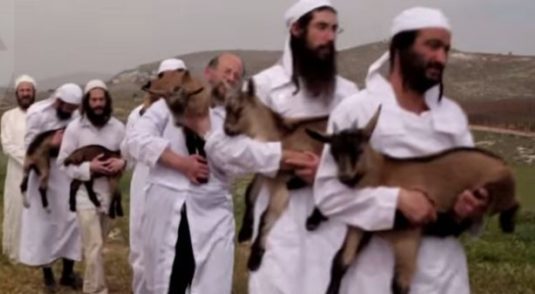Adapted from the writings of Dayan Yitzhak Grossman April 18, 2024 AP News reports: A…

Bais HaVaad on the Parsha, Parshas Beha’alos’cha
Who’s Asking?
Excerpted and adapted from a shiur by Dayan Yosef Greenwald
May 27, 2021
And those people said to him, “We are ritually unclean [because of contact] with a dead person; [but] why should we be excluded so as not to bring the offering of Hashem…?
Bemidbar 9:7
According to the Sifri, the phrase “those people” teaches that they asked the question about bringing the korban Pesach to Moshe themselves. The Panim Yafos explains that many of the people may not have been tamei, since only a person who carries the majority of the weight of a corpse becomes tamei, but one who helps to carry it with others (mesayeia) does not. Because they all asked together, Moshe ruled that they were all tamei to account for those who were certainly tamei.
The same conclusion would seem to emerge from the Gemara (Pesachim 10a) that states that if two people walk on two separate paths, one of which is known to be tamei, but it is uncertain which one, both individuals are tahor, because each has a chazakah that he is tahor. However, if they ask the question together, they are declared tamei, because two simultaneous rulings cannot contradict each other.
Tosafos there notes that this halacha is only mid’Rabanan, but mid’Oraisa, both persons are tahor. If so, it is difficult to understand how the Panim Yafos uses a similar idea to explain a pasuk. Perhaps the answer is that in the case in Pesachim, each person asks his own shailah about his own experience, albeit simultaneously. In the Pesach Sheini case, they all participated in the same activity of carrying a body, so perhaps they would all be tamei even mid’Oraisa.





